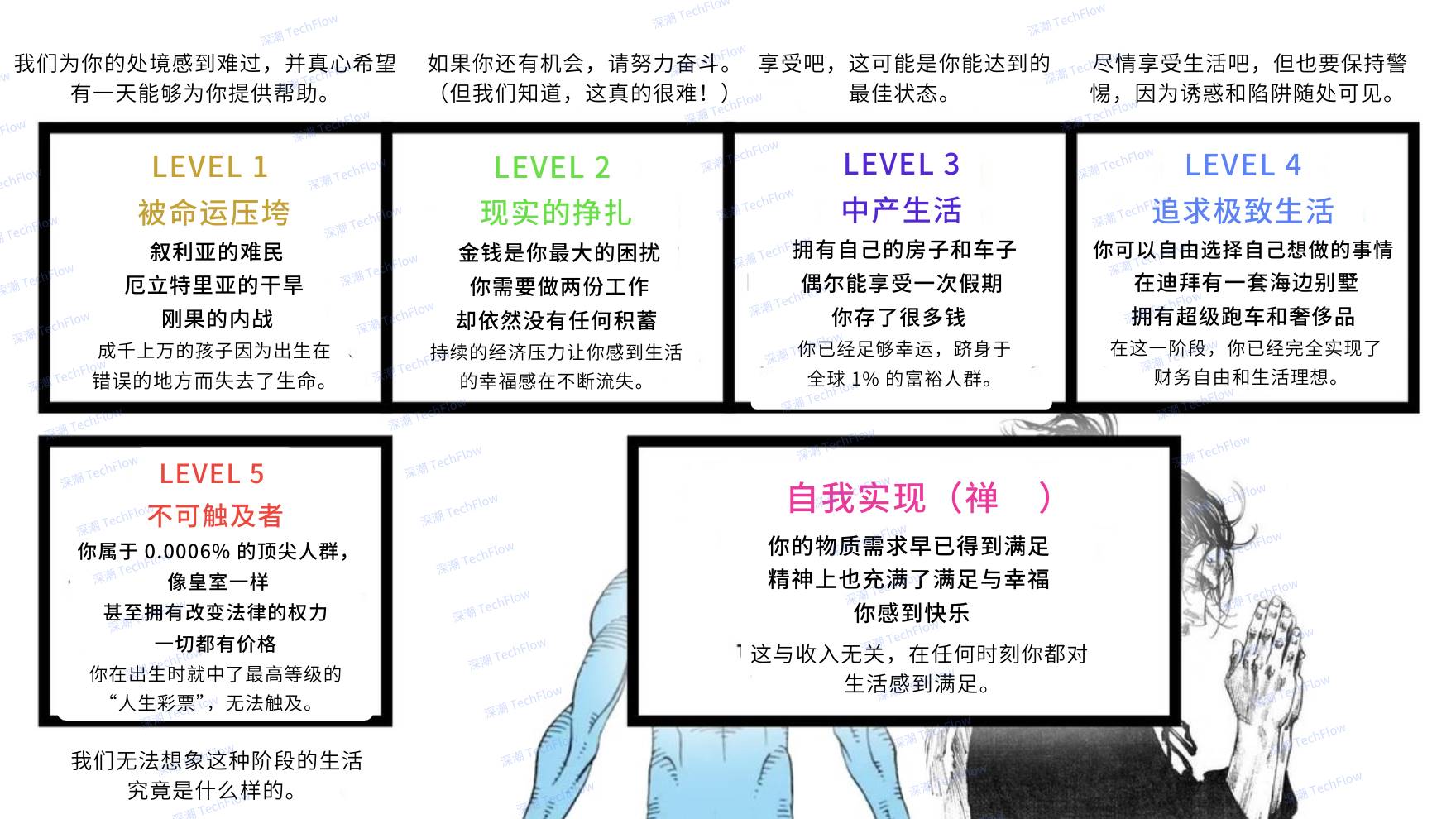Author: Loopify
Compiled by: TechFlow

In the pursuit of wealth, the ultimate outcome is the most important.
A person can earn millions of dollars in a short period of time, but the speed at which they lose that wealth is often faster than the speed at which they earned it.
If you compare the events before and after these occurrences, you will find that in most cases, the only difference is that the money earned was lost again - and these losses are often dozens or even hundreds of times the original net worth. Many people, because of their addiction to "casino" games, forget to withdraw in time, and end up losing all their money.
In another scenario, when most people make huge gains, the problem may be even more severe. Many will withdraw large sums of money and start to over-consume, falling into the so-called "lifestyle inflation". This phenomenon is often manifested in material consumption, especially when their main source of income is from the "casino" (such as the speculative market). They often overestimate their future earnings and assume that they can maintain a luxurious lifestyle with these earnings.
If you are not familiar with the concept of "lifestyle inflation", it refers to the fact that as net worth or income increases, people's spending on their standard of living also rises, eventually making past luxuries into daily necessities. For example, a person with a net worth of $50,000 in 2023 may spend $100,000 a year renting a penthouse apartment in Miami in 2024.
I entered the cryptocurrency field through the Non-Fungible Token (NFT) industry a few months after the Covid crash. If you are not familiar with NFTs, they were as popular as "meme coins" in the 2021 cryptocurrency cycle.
Over the next two years, I witnessed two extremes: some people successfully cashed out and earned eight-figure net profits, while others lost seven to eight figures of assets by holding NFTs, and some still hold these NFTs today.
In a bull market, the market generally rises, and people feel regretful that others have made 5 times the profit, while they have only made 2 times. In a bear market, everyone faces losses of -50%, -75%, or even -99%, and the mood is depressed.
These two completely different market environments will shape your trading habits, holding patterns, and views on money. This is why people often say that you need to go through 3 market cycles to truly "succeed":
The first cycle: You may make a lot of money, but then lose it all back.
The second cycle: You will become very cautious, but also miss out on many opportunities as a result.
The third cycle: You can find a balance between caution and boldness, and flexibly adapt to market changes.
If you're lucky, two cycles may be enough. But few people succeed in the first bull market cycle.
This applies to any investment portfolio size, especially when you've made tens of millions of dollars.
"Taking an investment from $1,000 to $1,000,000 is called 'poor risk management'."
In fact, almost 99% of people can take $1,000 to $1,000,000, but in the end, they will also let it fall from $1,000,000 back to $1,000.
When you succeed in the "casino game", especially with high-risk speculative assets like MEME, you may feel that there is no need to learn anything else. Regardless of what stage of the market you think it is in, I have seen many MEME players try to apply their skills to leveraged trading, only to lose all their previous gains. This also shows that we are closer to the end of the market cycle than the beginning.
Similar to the situation in 2021, when many Non-Fungible Token (NFT) players started trying to transition to trading cryptocurrencies.
This doesn't mean you shouldn't try, because in fact, adapting to market changes is very important. MEME cannot be popular forever. In fact, in some recent project releases and the 24-hour brief attention people pay to these projects, we have seen signs of the MEME coin craze gradually fading.
However, you need to enter this field slowly, learn and understand the market as much as possible. Treat yourself as a beginner, rather than trading with an arrogant attitude.
I delve deeper into the concept of "levels" in this article, which I believe is a useful framework for anyone who has unexpectedly become wealthy for the first time.

(Original image from Loopify, compiled by TechFlow)
In the process of wealth accumulation, we can divide our lives into different "levels". If you feel the gap between levels is too large, you can add a ".5" state in between. For example, "2.5" may mean you have a stable job and some savings, but haven't bought a house yet. This layered approach can help you better understand your situation and set goals to improve your quality of life.
When you are still in the "casino" - whether it's the cryptocurrency market or other speculative markets, remember to withdraw your chips at all times to improve your life. Each withdrawal is an "upgrade" for your life.
@Loopifyyy: "Once again, when you have become wealthy - be sure to plan how to protect your wealth.
The Non-Fungible Token (NFT) market will create many millionaires in the coming decades, and it will also develop into a huge market. But remember, just like any market, there will always be "losers". Keep this in mind."

This experience comes from a tweet in November 2021, when the cryptocurrency market was at its peak, and the Non-Fungible Token (NFT) craze lasted for nearly a year.
These experiences are not only applicable to cryptocurrencies, but to all areas of wealth accumulation. Wealth is just the first step, more important is how to protect that wealth.
How to Protect Wealth: Practical Advice
Continuously Realize Profits: Regardless of whether the market is rising or falling, profits should be realized regularly.
Profits Must Become "Real Money": Only when the funds are deposited into a bank account can they be considered true profits. Otherwise, you may re-invest the funds into the market, trying to buy the dips or new "hot investments", but the result is often that the cash cannot be withdrawn again.
Don't Be Deceived by "Peaks": The highest point of your investment portfolio is just a "virtual number" that you can almost never fully realize, so don't make decisions based on this number.
Avoid Lifestyle Inflation: As your income increases, try to remain frugal and don't let past luxuries become daily necessities.
Prioritize Debt Repayment: Whether it's credit card debt or a mortgage, paying them off quickly can significantly improve your financial level.
Distinguish Luck from Ability: Clearly identify how much of your gains are due to luck and how much are due to your real investment skills. If you are not humble enough, the market will eventually teach you a lesson.
Avoid "Revenge Trading": Trying to recoup losses through aggressive trading after a loss often leads to even greater failure, and can even zero out your entire portfolio.
Survival is the prerequisite for success, and staying alive is the only way to have a chance at success.
"Not trading" is also a trading strategy.
You don't need to participate in every seemingly "shiny" opportunity, nor do you need to feel anxious because of others' huge gains or losses.
In the market, there is a situation where even if BTC rises to $1 million, many people have already gone bankrupt before the cycle ends because they have made foolish decisions. Do you want to be such a person? Of course not, no one wants to be like that.
So, make sure to take your chips with you when you leave the "casino" and truly add value to your own life.






